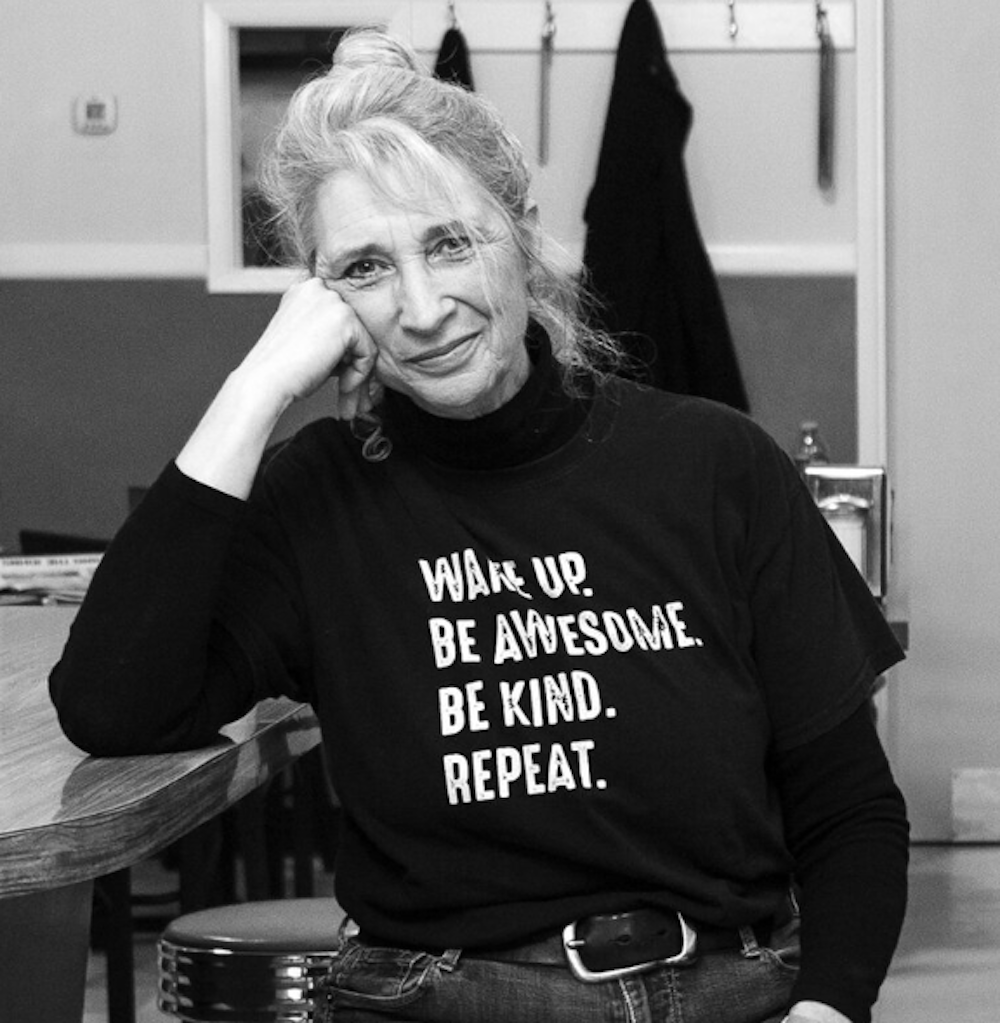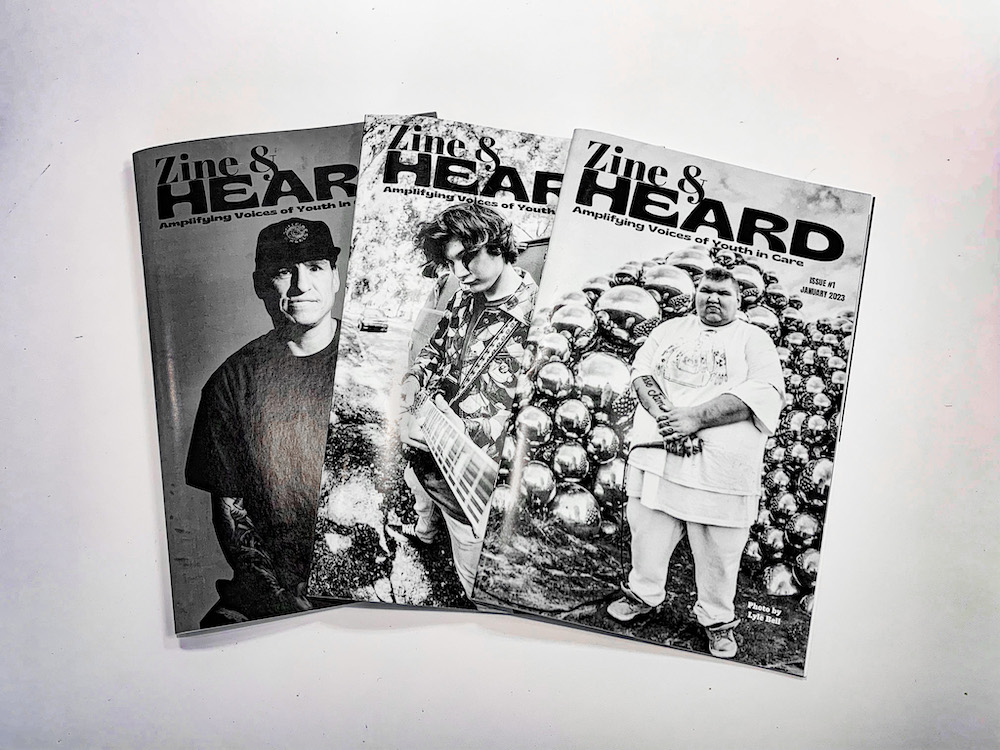While B.C. has made positive steps when it comes to supporting youth aging out of the child welfare system, Alberta has gone backwards.
In 2014, Alberta was the first province to extend existing policies supporting youth from care from age 22 to 24.
The Progressive Conservative government of the day made enrolment in a program called the Support and Financial Assistance Agreement automatic on a young person’s 18th birthday with up to six months of support available total, extending the eligibility cut off to their 24th birthday, following a recommendation from the province’s child welfare watchdog.
Most provinces at the time, including B.C., were still cutting off youth in care the day they “aged out” of their child welfare placements on their 18th or 19th birthdays, depending on the province. Youth in B.C. who were in a specific academic, life skills or mental health and addictions programs could get support beyond their 19th birthdays, but only for two years max at the time.
Today, however, while B.C. has pledged to provide financial support for all young people from care up to age 27 by 2025, Alberta has regressed.
In 2019 the United Conservative Party announced the Support and Financial Assistance Agreement would be replaced by another program, the Transition to Adulthood Program, or TAP, which would cut off most financial support at age 22 and require youth from care to switch to a TAP-specific case worker when they aged out.

Penny Frazier, a youth worker who has been working with vulnerable and high-risk young people since 1978, has seen first-hand how devastating the loss of financial support and a caseworker have been on young people from care in Alberta.
Frazier’s latest “passion project” is Zine & Heard, a self-published magazine by and for Alberta youth from care. Published monthly, 350 copies of the free zine are printed for each issue.
Since its first issue this past January, Zine & Heard has featured members of mumble punk band Jesse Jams and the Flams, former champion boxer and current jockey Omar Moreno and pro-skater and actor Joe Buffalo on the cover. Moreno and the Jesse Jams and the Flams members are former youth in care. Buffalo was separated from his parents and forced to attend residential school.
The zine includes poetry, personal essays and art created by youth from care, who receive $10 per submission. So far, issues have advocated against TAP and for supporting youth from care into adulthood — when most of their peers are still supported by family.
Frazier spoke with The Tyee last month about the origins of Zine & Heard, what youth from care across Canada have in common, and the importance of listening to youth about their child welfare system experiences.
Responding to our request for comment on Frazier’s criticisms of the Transition to Adulthood program, Chinenye Anokwuru, press secretary for the Alberta Minister of Children’s Services, told The Tyee via email, that all TAP recipients “receive social and emotional transitional supports, health benefits and soft supports including mentoring, mental health and addictions services and access to community resources.”
The Tyee: Tell me about Zine & Heard.
Penny Frazier: There was a group of former youth in care in Edmonton called Youth Speak Out, led by other former youth in care who worked in the child welfare system. They did absolutely showstopping presentations where they told their stories to social workers, foster parents, teachers, police, probation officers, child and youth care workers. Very powerful, very well received.
However, it was not always easy to find youth who were able to speak. In 2020 I heard they wanted to do a book, and because I'm a writer and I got laid off from my job during the pandemic, I called one of the leaders and said I'd be more than happy to help.
There were six people on the editorial team: myself, three former youth in care, a professor from the University of Calgary and her researcher who had a social work degree. Along with 18 Edmonton authors who are all former youth in care, we published a book called the Youth in Care Chronicles: Reflections on Growing Up in the Child Welfare System about their experiences growing up in care. Since then we've thought, "How could we continue to tell those stories?" Because they're so important.
Last fall I thought, "Gee, a zine would work." I did a couple of zines years ago with youth, and it's a very powerful form of writing and sharing people's experiences. I ran the idea by several former youth in care, including a few from the [book’s] editorial team, and they all agreed. The seed was planted and we released our first issue in January.
How is the zine funded?
We're having a fundraiser this fall. There was a bit — and I mean a bit — of seed funding from a silent donation that ran out. So we strictly depend on donations and sponsorships, because the zine is free and will always be free. Whatever we're short every month I put in myself, because that's how strongly I believe in this project.
We have gotten some donations that have been so helpful. I'm hopeful they will continue to roll in, we'll continue to grow. I'm gonna see what kind of grants are out there. But we will carry on.
Who else is involved in putting the zine together?
Whoever wants to share a story, a photo, to contribute is part of the zine. They are part of the "we" — I always say "we" because I just put it together and get it to the printer. Without contributors, there is no zine.
The Government of Alberta’s Transition to Adulthood Program comes up a lot in Zine & Heard. What was it like to transition out of the child welfare system at 18 before TAP?
When you turned 18, you had the opportunity to qualify for continued care until you were 24. There were financial supports and you kept your caseworker. Keeping your caseworker is critical for youth in care: if they have had the same caseworker for even two or three years, it's really important that they keep that relationship because it may be the only stable or significant relationship with an adult that they have in their life.
With the TAP program you have to start over with a TAP worker. It is a really big deal, because it takes youth in care a very long time to establish relationships for obvious reasons. Some of them have moved so much and had so many workers, they lost track long ago.
TAP was introduced through a policy change, not legislation. What is the difference between enshrining support for youth from care in legislation versus making it a policy?
Legislation would make it so it was set in stone, part of the ongoing care of the youth from government care. A lot of youth were 20, 21 when this change to TAP came about. I've talked to many who had their lives mapped out to age 24. Suddenly, it becomes 22.
So if the support to age 24 had been legislated, there'd be a commitment to youth that wouldn't be easily changed by a premier or different entity that does not see the value in investing in youth in care. Policies can change very quickly.
When you first contacted The Tyee about Zine & Heard, you mentioned how devastating that loss of two years of support is for youth from care. Can you elaborate?
There are youth who also lost other supports, such as their youth worker, their therapist. Many have become homeless or have to live in unsafe places. They may have had to move if, for example, they were still in a group home and thought they had funding until 24. Now they don't — where do they go?
It's just another layer of trauma. Youth who come into care already have extensive trauma being removed from their home to begin with. Being in care brings many more forms of trauma. They move around a lot in different care settings; they may have any number of caseworkers, youth workers, health-care professionals — those can number in the hundreds for youth in care. They often have to move schools, too, which is really traumatizing.
Being cut off at 22, it's a type of abandonment because the government is technically their parents. That is extremely traumatizing for youth to be abandoned, yet again; to know that they're not cared about, yet again. The layers of trauma just keep growing as youth grow through the system. Not all, but it is very common. I think their mental health really suffers as a result of being dropped, and a lot of youth in care already have mental health issues.
The Government of Alberta says, "We do support youth aged 22 to 24." No, they do not. They say, "We'll help you find a job. We'll help you go back to school. We'll help you get mental health supports. But we can't help you if you're homeless." And if you're homeless, are you going to go to school? Is it going to be easy to find a job? Are you going to be able to get to your mental health appointments, if you even have them?
You can get financial supports up until age 22 if you qualify. There is no guarantee that you will get those supports past age 18. You can still be cut off.
You say youth are falling through the cracks and youth are ending up homeless. Are people measuring this?
Not that I am aware of. I hope so. Deaths of youth from care have risen significantly in Alberta. The report from the Office of the Child and Youth Advocate says from 2021 to 2022, there were 49 deaths of youth [who received] care. There were 34 deaths the year before. It is significant.
Let's do the math: there's 450 to 500 kids who age out of care every year in Alberta. So there's 500 youth who are 200 times more likely to become homeless. It's very sad and it makes me really angry. There was no reason to lower that age. It was a money grab because the crazy thing is they saved $14.5 million lowering the age.
They have since spent $76 million on the TAP program, which does not support youth aged 22 to 24. It's wrong. Those youth need those supports to go on to be successful or be healthy and okay.
What do youth in care want to see in terms of support after turning 18?
I think they want to see they are genuinely cared about, number one. That they actually matter. They want education, training, to pursue their dreams, funding up to age 24 so they have a place to live, and a caseworker who is actively involved in their life. They want to be happy, successful, secure, have families, have jobs, travel: to do all the same things their peers do.
And have that enforced in a law versus a policy?
Yes. It needs to become legislation.
Would there still be a need for Zine & Heard if that happened?
One hundred per cent. Because the voices of youth in care have traditionally not been heard. They're possibly one of the most marginalized groups in Canada. The main thing about the zine is to inspire other youth in care, give them hope, and invite them to share their stories, poetry, fashion, photography or whatever it is they do.
We do have the social justice component, of course, because it is a really safe platform. We're fully independent, we don't have to worry about what we say or how we say it. We can withhold your name if you want. And it's a really cool publication. We need to get the voices out there, get the issues out there, because the average Canadian doesn't know a lot about youth in care or the child welfare system. They don't make up a large percentage of the population.
One of the things we heard time and time again about the book, and now with the zine, is the average person saying, "I didn't know that youth in care were five times more likely to die before the age of 25 than their peers." That's a statistic that blows people's minds.
Youth in care go through more in 18 years than you or I will probably go through in our lifetime. And still, they rise up, they beat the odds. They're some of the most kind and thoughtful people that I have ever met. They have retained this high level of empathy and compassion and care for each other, and for those around them. It's truly remarkable.
That's why we like to feature somebody every month who has really beat the odds, like Brandi Morin, Jesse Thistle, Omar Moreno, because youth in care are reading these stories. More and more agencies, organizations and former youth in care are getting a hold of me. This is exactly what we wanted the zine to do. There's a story coming out in the June issue, a woman, mid-60s and she grew up in care in Edmonton and her story is so gripping. But she said, "I haven't been able to talk about any of this until about a year or two ago." It's so important that we are sharing the stories, it's hard for me to talk about because I get emotional.
So many people are contacting us saying they love the political side of it, but they also love the arts, the music, the stories, the bravery. Whether it's working on a political scale, I couldn't tell you. But it is certainly working in regards to getting youth's voices out there, being heard and raising awareness of the child welfare system. Because once you raise awareness, and people are listening, that's when change happens.
Why is it important for youth in care in one part of Canada to know what's happening with youth in care in another part of Canada?
This happens everywhere in Canada. Youth in care experience the same things, you will find the same stories. I've seen it when youth in care meet up, it's like this instant connection that they have.
And every province has been fighting to get their age to leave care raised. B.C. and Ontario have done that; it isn't legislation, unfortunately. But they have managed to raise their age and establish a lot of supports and benefits for their youth. Alberta has gone backwards by lowering the age, which is silly. But there isn't a province in Canada where youth in care and their allies are not fighting for the exact same things.
The other thing about youth in care is there's Indigenous kids, non-Indigenous kids, kids who've immigrated to Canada, disabled kids and LGBTQ2S+ kids: almost every youth is represented in care. Obviously, and very sadly, a high percentage of Indigenous youth.
Where can people get copies of Zine & Heard?
They can get on a mailing list. But the main places are Local 124 Skate Shop, Audreys Books, Glass Bookshop and I also drop them off at all the youth agencies, the emergency shelters, the big Boyle Street Co-op, because there is no age limit for the zine. And I'm really trying to get it out to homeless youth, because I guarantee you 65 to 70 per cent of them were in care. ![]()
Read more: Health, Rights + Justice, Alberta, Media

















Tyee Commenting Guidelines
Comments that violate guidelines risk being deleted, and violations may result in a temporary or permanent user ban. Maintain the spirit of good conversation to stay in the discussion and be patient with moderators. Comments are reviewed regularly but not in real time.
Do:
Do not: